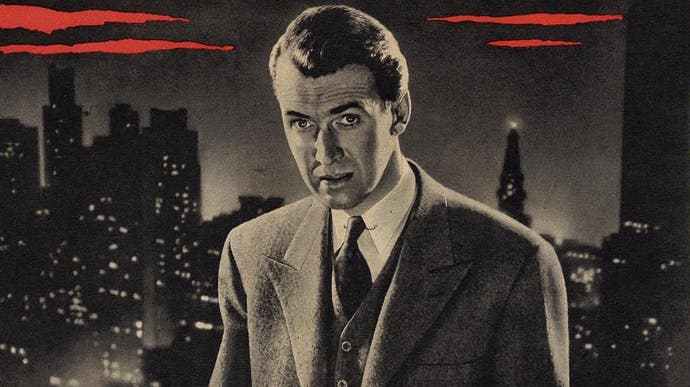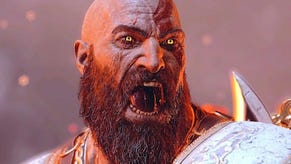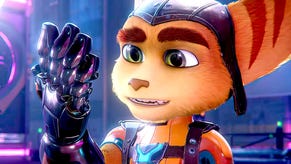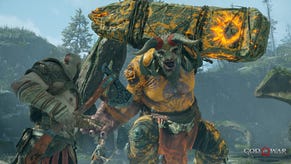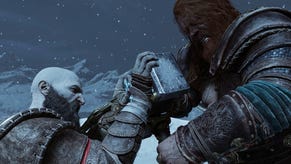Hitchcock, God of War and the long take
Endless oner.
I have no idea what the best Hitchcock is. I suspect it's probably Shadow of a Doubt. It was his favourite, so you'd think he would know, and it's got that glorious, time-freezing moment when Uncle Charlie turns to address you, mid-speech, eyes meeting across the ages and you feel somehow caught, somehow complicit - you feel the way, I gather, that Hitchcock felt his entire life.
Yes! Shadow of a Doubt is a banger and no mistaking, but my favourite? My own favourite Hitchcock - and I am not for a second trying to say it's the best, whatever that would mean anyway - is Rope.
I first encountered Rope through Moviedrome, the single greatest programme about cinema there ever was. And Rope itself? Pure cinema, but also pure theatre, and pure craft. Rope is the tale of two college students who murder a friend and then serve dinner to his parents off a chest that holds the poor boy's corpse. It's based on a real crime, which made it controversial at the time of its release and still gives it a sickly kind of chill today.
That's one story of Rope, anyway, but there's another. Rope was an experiment, from a director who was always experimenting (this seems to me to be the core of Hitchcock, which is why I would argue that his modern equivalent is Zemeckis rather than any of the usual suspects). It was his first colour movie, I think, which is all very nice. But it's also executed to feel like an almost uninterrupted single camera take. There's an exchange of close-ups towards the end, but the effect, by this point, is so hypnotic that I can never spot them. For the most part, we move in from the street after the credits run and then we're in a penthouse. Real-time. We never leave until the whole thing is done.
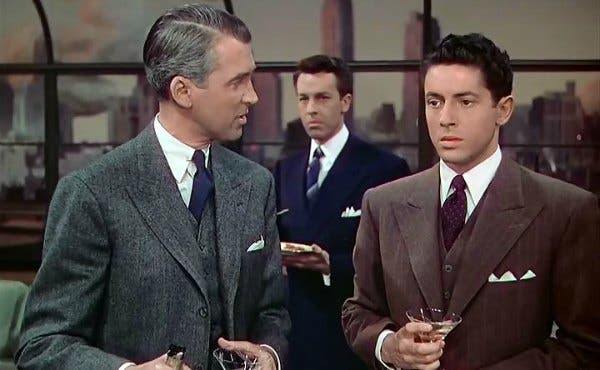
I thought of Rope this week while playing God of War, which is generally about as non-Hitchcock as you can get - but for one thing, I guess. God of War makes a big deal of unfolding in a single shot. You start on Kratos chopping down a tree, you follow him through Midgard, and you never break away. Fast travel is seamless, give or take the futzing with a menu. Brawls give way to boss-fights without an edit. Even the series' trademark spectacle does not force the director to yell cut and reposition things for the perfect angle. God of War flows from the beginning to the end.
And it is impressive, I think, but only once it has been pointed out. I don't think I would really have been too conscious of it if it hadn't been a talking point in the lead-up to release. Shamefully, I don't think I would have thought it was that special, in a way, since video games, first-person or third-person, are often the realm of extremely long takes already. Even Uncharted, which loves a cutscene, is happy to follow Drake for minutes on end, swooping after him through caves and over cliff-faces. This would be astonishing stuff for a film, but for a game we're so used to following behind someone or sitting snugly inside their head. In games, in fact, the arrival of genuine editing has actually been more arresting than the mannered removal of it. Think of Thirty Flights of Loving, which has the audacity to cut as you walk down a corridor. Think of Virginia, which is happy to make you hit your marks as you move through actual montage sequences, while time fluctuates around you and images clash with other images in that spiky, thought-provoking way that gets at the very heart of cinema.
The heart of cinema! I have been trying over the last few days to unstitch why Rope's long take moves me while God of War's doesn't quite as much. It's not a question of intent, because long takes the world over are always showboating, always an indulgence. Even when they're a thrifty, almost invisible Spielberg oner, they're still a bit of showing off, of a director having fun. Not that there's anything wrong with that, obviously. (My favourite bit in Rope is when he manages to do some ersatz-editing anyway - wheels within wheels! - using a swinging kitchen door to break up and frame the individual movements of dropping a rope into a drawer.)
And it's not quite a question of technology either, because I get what an achievement it must have been for God of War to work in this way. Or rather, I get that I cannot get what an achievement it must have been: I understand, at least, that I do not understand enough of technology to grasp the murderous intricacies of loading and buffering that must take place when Kratos steps into a portal and emerges, mere moments later, somewhere completely different. I forgive the occasionally leaden backtracking section here because I know instinctively how hard this must have been, just as I admire the beauty of Midgard's clockwork hub that turns out to be capable of reaching many diverse locations.
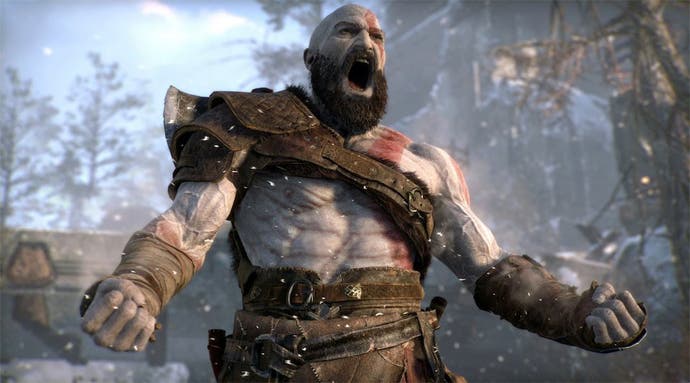
I think it is a question of the type of technology used. I know that sounds impossibly hair-splitty and possibly a bit Mojo-reader, but here's the thing. When I think about why Rope's my favourite Hitchcock, I think about craft more than I think about art or vision or any of that gumpf. I think about a camera the size of a small fridge, and I think about a set that had breakaway walls and a model of the New York skyline that had hundreds of flashing lights and sat beneath a sky filled with fiberglass clouds that were moved on rails. (I am dimly aware that I have Moviedrome to thank for all these insights.) I think about camera operators and cable bashers racing around in this relatively tiny space, of entire bits of the set being shifted about behind the scenes like pieces of a puzzle. I think of actors who suddenly feel very close to us, because in their performances you can see the in-the-moment theatre-actor's fear of absolutely blowing something vital.
Rope feels alive, or rather it feels strangely live, in that way that all long takes used to, from the opening of Touch of Evil (the crossing guard used to fluff his line at a crucial moment, I was once told) through to the bar scene in Raiders. More than that, Rope also feels like a mechanism. It feels like you are peering into the heart of a complex device as much as watching a film, and that's because of the practicality of it, of the need to use real walls, real light, real actors missing real lines. Testify! Rope isn't long, but it's longer than the longest available reel of film was at the time. Because of this, every eight or so minutes, someone moves in front of the camera and we get a secret cut. These secret cuts are fantastic and it is a joy to spot them, because they are all part of the machine that allows the whole thing to work.
And it's not this practicality so much as what this practicality affords my feeble imagination. To put it another way, a magician friend once told me that doing close-up magic with cards and rubber bands is deeply cool, but doing it with an iPhone is often bull***t, because people already think iPhones are magic, so they're never really impressed. iPhones are a black box, because computer technology is often a black box. Most of us don't understand how this stuff works so the limit to our beliefs of what they can do is pretty much infinite. Rope is a practical trick - it is essentially done with coins and cards and a few rubber bands. God of War's long take is one more piece of magic in a game that is already made of magic. I don't get how they did it, but I don't get how they did anything in this game. I don't know how Pajitnov managed to render those falling blocks in Tetris. This is not to diminish anybody's work, but to admit that I can't adequately congratulate them on their individual brilliance. (Hey, if I understand so little, should I even be writing about these things? I know, right.)
Soap box moment. Maybe this goes some way to explaining why long takes seem so uninspired in a lot of modern movies. (Since typing this I have already been told off for forgetting Children of Men, Gravity, Birdman and many other brilliant examples, but still.) Towards the end of one of the Avengers films, for example, I was stirred briefly at the thought that, cor, this shot had been going on a long time. Then I thought: of course it has. It's the Avengers messing around over the skies of New York and so we politely visit each of them in turn to see each of them doing their special bits and pieces. It's all CGI, and while I'm impressed on an intellectual level I'm not thrilled in any way, and not just because films in which you politely visit each character in turn while they deploy their signature move are not something I'm ever going to find particularly thrilling. Computers are magic, aren't they? I know they're not, of course, but I also know that the fact I believe that they are anyway is part of the reason I write about games in the first place. But maybe there are different kinds of magic out there.
